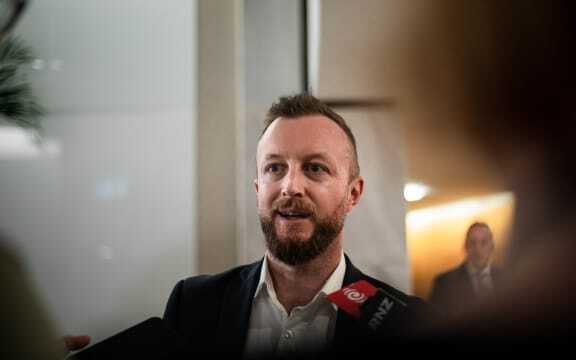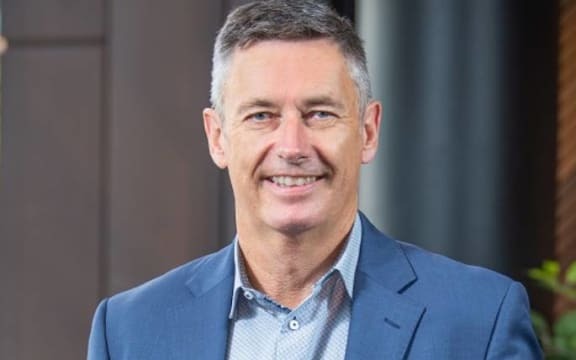Future for Local Government review: What you need to know
RNZ
20 June 2023, 8:53 PM
 The Future for Local Government report - He piki tūranga, he piki kōtuku - was released on Tuesday. PHOTO: Screenshot
The Future for Local Government report - He piki tūranga, he piki kōtuku - was released on Tuesday. PHOTO: ScreenshotA panel that spent two years reviewing the state of local government by talking to councils up and down the country has concluded a radical overhaul is needed.
The Future for Local Government report - He piki tūranga, he piki kōtuku - said the relationship between central government and local government needed to be improved to better serve New Zealand communities.
It laid out 17 recommendations under five different themes, panel chairman Jim Palmer telling RNZ if implemented, they could be "world-leading".
The 135-page report, with over 800 pages of supporting material, said a requirement for councils to develop better partnerships with hapū/iwi was needed, terms should be extended to four years, and the voting age for local government lowered to 16.
It also wanted to establish a dedicated Crown department to facilitate a more effective working relationship between local and central government.
Why was this needed?
The review is the most "significant" report on local government that has been done since the 1989 reforms and 2002 Local Government Act, the panel said.
It comes at a time when New Zealand is responding to "economic, social and environment challenges".
It was announced by then-Minister of Local Government Nanaia Mahuta on 23 April, 2021, to focus on how the local democracy system needed to evolve over the next 30 years. At the time, Mahuta said now more than ever, local governance participation and democracy needed to be strengthened.
"It is about our people," she said. "LGNZ believes that the time is right to review proactively the local government framework in order to ensure we are locking in the strengths of the existing system while addressing its weaknesses and enabling democratic decision-making at the appropriate level."
What did the review panel say about it?
Review panel chairman Jim Palmer said it had taken two years to prepare and provide the report to Local Government New Zealand and Local Government Minister Kieran McAnulty.
It was up to them to consider the recommendations and decide the next steps, with the panel recommending a steering group be established - made up of representatives from both local and central government - to do this.
Palmer said the panel believed local government needed to be strong to build community resilience and strong local democracies.
"Currently, local communities are not well served by the relationship between local government and central government and a reset in that relationship is required. Our communities must be empowered to develop local solutions with more support and funding from central government."
The five-person panel engaged with local councils for two years as part of the review, travelling widely up and down the country. They heard a "wide range of views" but nothing that was particularly surprising.
"Many of the issues that we have raised in our report have been longstanding for quite some time now," Palmer said. "What we see is 17 impactful recommendations that if implemented, will create a system of local government that is both fit for the future and world-leading."
What did the local government minister say about the review?
McAnulty told Local Democracy Reporting the report was an opportunity to work with local government and consider the issues raised, after the upcoming election.

Minister for Local Government Kieran McAnulty. PHOTO: RNZ / Samuel Rillstone
"We need to know how our system of local government needs to evolve so it is better able to support programmes critical to communities, such as our emergency management system, our climate resilience profile, improvements to housing supply and councils as enablers of community wellbeing.
"Reforming local government is important, but 'bread-and-butter' issues and recovery from recent disasters take precedence in the short-term."
What did LGNZ say about the review?
In a statement, LGNZ president Stuart Crosby said not every council would agree with every recommendation, but local government was "united in the need for change".

Local Government New Zealand president Stuart Crosby. PHOTO: Supplied
"It's time to face into the future. With a roadmap to a brighter, more sustainable future now delivered by the panel, it is time for local government to pick up the mantle. Central government cannot solve the issues communities face on its own. If we look at the big issues such as climate change, dealing with regional inequalities, building social cohesion and planning for growth, local government is best placed to take a leadership role."
Central Hawke's Bay Mayor Alex Walker said it was an "exciting time" to be an elected member of local government.
"We urge politicians not to take the easy road and play politics with the report. Local government matters too much to our communities. Let's look at the recommendations through a localism lens."
Walker said every recommendation needed to be considered thoughtfully.
What were the recommendations in full?
The panel split its 17 recommendations into five different themes.
Embedding local government's purpose and wellbeing focus
- Entrench the purpose of local government, as set out in the Local Government Act 2002, to embed intergenerational wellbeing and local democracy at the heart of local government.
- Introduce statutory provisions to reinforce and give effect to the purpose of local government in the Local Government Act 2002, by:
- councils setting wellbeing goals and priorities each term, in conjunction with community and hapū/iwi and Māori
- central and local government committing to align wellbeing priorities and agree place-based investment plans.
Growing authentic Te Tiriti-based partnerships
- Introduce new provisions in the Local Government Act 2002 that explicitly recognise local government as a partner to Te Tiriti o Waitangi and te ao Māori values to strengthen authentic relationships in the local exercise of kāwanatanga and rangatiratanga.
- Introduce a statutory requirement for councils to develop partnership frameworks with hapū/iwi and Māori to give effect to new Te Tiriti provisions in the Local Government Act 2002 that create new governance arrangements and complement existing ones.
- Central government leads a comprehensive review of requirements for engaging with Māori across legislation that impacts local government, considering opportunities to streamline or align those requirements.
- Amend the Local Government Act 2002 to require councils (elected members and chief executives) to prioritise and invest in developing and strengthening their capability and capacity in the areas of Te Tiriti o Waitangi, te ao Māori values, mātauranga Māori, tikanga, and the whakapapa of local government in order to make local government a better Te Tiriti partner.
System renewal
- Initiate a reorganisation of local government to strengthen, support, and resource councils to plan for and respond to increasing challenges and opportunities, and to set local government up for a more complex future.
- Establish a dedicated Crown department to facilitate a more effective working relationship between local and central government that focuses on:
- a relational-based operating model to align priorities, roles, and funding
- brokering place-based approaches and agreements to address complex challenges and opportunities
- research, development, and innovation capability that equips local government to maximise intergenerational wellbeing for its communities.
- Establish a new local government stewardship institution to strengthen the health and fitness of the system. This entity should:
- provide care for and oversight of the local government system, including the health of local democracy and local government's future-fit capability and capacity
- foster common purpose and relationships
- support and enable the health of the Māori-local government relationship
- incorporate the current roles and responsibilities of the Local Government Commission.
Strengthening local democracy and leadership
- Local government and councils develop and invest in democratic innovations, including participatory and deliberative democracy processes.
- Enhance local democracy in order to increase access and representation by:
- providing for a four-year local electoral term
- adopting ranked voting (also known as single transferrable vote or STV) as nationwide method for local elections
- lowering the threshold for the establishment of Māori wards
- enabling Te Tiriti-based appointments to councils
- lowering the voting age for local elections to 16.
- Local and central government coinvest to build adaptive leadership capability focusing on
- leading change and system renewal
- valuing civic leadership and public service
- partnership and collaboration
- innovation and experimentation.
Increasing funding
- In order to prioritise and deliver on wellbeing, central government makes a greater investment in local government through:
- an annual transfer of revenue equivalent to GST charged on rates
- significant funding to support local priorities, place-based agreements, and devolution of roles.
- Central government pays rates on Crown property.
- Central government develops an intergenerational fund for climate change, with the application of the fund requiring appropriate regional and local decision-making.
- Cabinet is required to consider the funding impact on local government of proposed policy decisions.
- Central government commits funding to support and enable the future transition by:
- resourcing a transition unit to support the change and system renewal of local government
- supplementing local government capacity funding to enable hapū/iwi and Māori to partner with councils
- supporting councils to: build Te Tiriti and te ao Māori capability and grow mana whenua relationships; lift their immediate capacity and capability to innovatively deliver wellbeing priorities for their communities; trial and grow participatory and deliberative democracy practices.
Will these recommendations actually be implemented?
Well, that is yet to be determined.
McAnulty told Local Democracy Reporting the government would consider the report once the election was over.
"In the meantime, we are interested in hearing from councils their initial views on the final report.
"We are conscious of other sensitive areas of work that require focus and resources, such as helping New Zealanders through complex economic circumstances and recovery from recent weather events."
McAnulty said the election gave local government time to get together, look over the recommendations and decide what it did and did not like.
"Then, after the election, we can sit down and agree on how to progress things."


